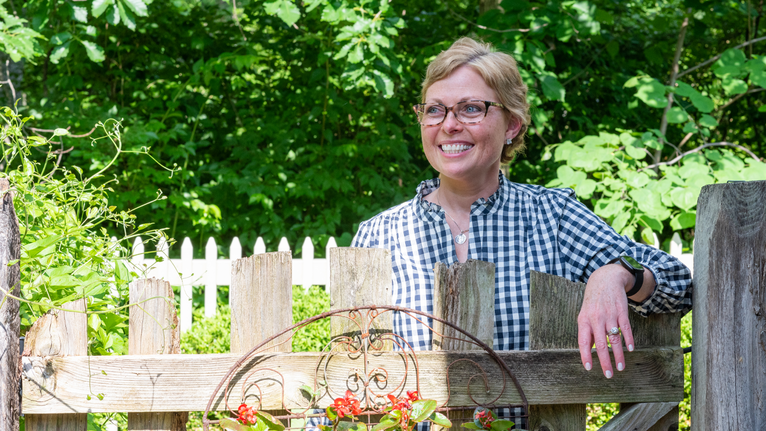“It’s not like I planned on having cancer,” Tracy says, “But I figured I better be prepared and stay on top of preventive medicine.” That preventive plan included regular mammograms.
Several years ago, a scan discovered linear calcifications in Tracy’s left breast. Doctors wanted to keep a watchful eye on it, so providers prescribed a mammogram every six months for Tracy.
In March 2021, one of those regular mammograms detected something that concerned Tracy’s doctors and they scheduled a biopsy. The results showed Tracy had invasive ductal carcinoma in her right breast.
Facing a Breast Cancer Diagnosis: Invasive Ductal Carcinoma
One of the first things Tracy did was call her younger sister, Susan Budnick, MD, an internal medicine specialist at Case Western University and a graduate of the University of Cincinnati College of Medicine.
“She told me I had to be treated at UC Health,” Tracy recalls. “She was sure there was only one place to receive expert cancer care.” That assurance helped Tracy feel more at ease.
Finding Streamlined Breast Cancer Treatment at UC Cancer Center
As a resident of Madison Township, Ohio, Tracy was relieved to discover her entire treatment plan could take place at UC Health’s West Chester Campus, which was close to her home.
“I literally had everything completed under one roof at West Chester, from start to finish,” Tracy says. “They have everything so streamlined for the patient.”
Tracy admits to feeling overwhelmed and sick to her stomach in those early days of diagnosis. But, from her very first visit to UC Health, her worries were eased.
“The nurse told me that they take care of this every single day,” Tracy remembers. “She told me that breast cancer is an urgency, not an emergency. I remember wondering why I got so upset. They just had such a positive attitude, so I did too.”
Tracy’s doctors recall her positive outlook more than anything else. “I don’t think I ever saw her upset; she always came in with a smile,” says Emily Daugherty, MD, UC Health radiation oncologist at the University of Cincinnati Cancer Center and assistant professor of oncology at University of Cincinnati College of Medicine, “She’s just a joy to be around, no matter the circumstance.”
Dr. Daugherty collaborated with two additional University of Cincinnati Cancer Center specialists, Jaime Lewis, MD, UC Health surgical oncologist and associate professor of surgery at UC College of Medicine and Mahmoud Charif, MD, UC Health medical oncologist and associate professor of oncology at UC College of Medicine, to develop a multidisciplinary care plan for Tracy.
“Not only do we have the highly specialized expertise as doctors, we all work well together, collaborating to ensure that care and services move quickly,” says Dr. Daugherty. “Every patient receives a personalized care plan that doctors from all disciplines agree on together. We are constantly communicating about all of our mutual patients, which means superior cancer treatment.”
Tracy, who turns 50 in a few months, agrees. She describes her first meeting with the cancer care team as refreshing. “They really put me at ease,” Tracy says, “and they simplified everything.”

